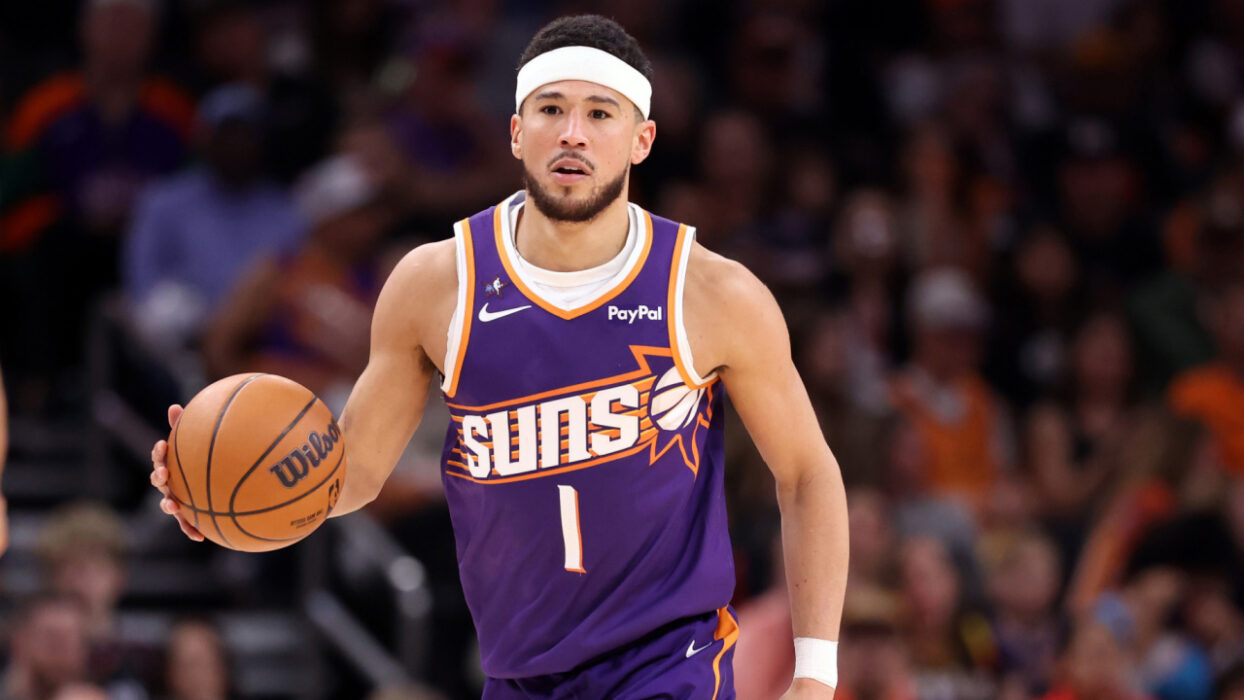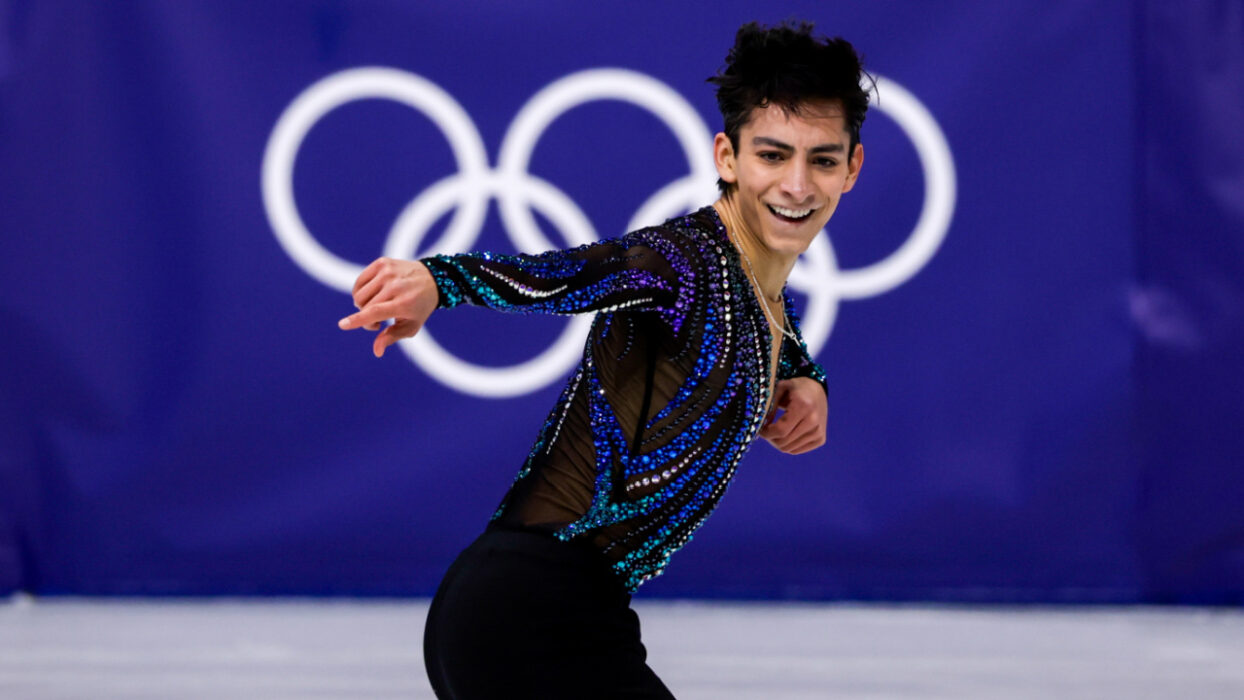
Canceled Shows and More, Two Latino Filmmakers Talk About the Reality in Hollywood
Linda Yvette Chávez (Gentefied) and Eddie Gonzalez (On My Block) have never worked on a show together. However, the homegrown screenwriters put pen to paper on common ground in Hollywood, where there’s a thin line between award-winning success for a Latino-led series and the cutting room floor next to a pile of cult classics written by their peers.
They’re part of a cultural movement to create more content that represents the unseen. They’re also trying to defy a cautionary tale where Latino shows that register scores over 90% on Rotten Tomatoes seem to get canned by the major Hollywood studios every year, like Punxsutawney Phil popping up on Ground Hog Day.
The recurring theme is starting to hit different. It raises questions about whether or not screenwriters like Chávez and Gonzalez will have to compromise their casting choices, character development, and social principles to appease the shot-callers who seldomly share a cultural connection to their scripts.

Diversity initiatives vs. reality in Hollywood
Decisions regarding whether or not original stories by POC creators are granted a pilot season, renewal, or cancellation ahead of the upcoming “Fall Schedule” will be heavily swayed by a shortlist of CEOs at powerhouse entertainment industry conglomerates. Some of them are The Walt Disney Company, Warner Bros., Netflix, Discovery, Sony Pictures, and Universal Studios, all of whom are Caucasian men over the age of 59.
The view from atop the corporate pyramid in Hollywood might not seem like a perspective dripping in objectivity. Subsequently, this has created a familiar predicament where Latino viewers find themselves crossing their fingers in hopes that beloved shows like “Primo” won’t follow the downward trend to the dreaded place in prestigious boardrooms where story arcs go to die.
Others have already begun bracing themselves for more heartbreak by chucking up the deuces at their favorite programs prematurely. Like so many screenwriters, Chávez and Gonzalez have more Latino-led stories to tell in 2024. But is now the time to switch lanes from shows of a dying breed to the “safety zone” where Caucasian actors/actresses can lead a new series to a pop-culture haven?
“We’ve gotten those notes in the past,” Gonzalez said. “[My writing partner] Jeremy and I had a feature career for many years, and we would definitely get a note on occasion going, ‘Okay, cool, your lead is Latino. Wouldn’t it be great if he had a partner who’s White?’ When you’re creating shows with Latino characters to some people, it might be risky, but I refuse to be a victim and complain about the studios’ system.”

Empowerment and advocacy: the role of Latino filmmakers
With representation on the decline, Chávez recently indicated she has no intention of regressing to the mean either. Instead, she envisions a new climate in the industry where her penchant for creating untapped ideas featuring plus-sized princesses, Latina mermaids, and more non-binary protagonists will someday have a seat at the table right alongside the classic Disney characters that she grew up watching on TV like Ariel from “The Little Mermaid.”
To that point, when posed with a hypothetical question about making a biopic involving the historic proprietor of the Walt Disney Company, Chávez stated that her angle for such a story would focus on “the people in his universe that come from our communities and contributed to the success of the brand,” because that is what she could relate to.
During a recent interview with mitu, the Norwalk native touched on the plight she shares with her peers by underlining their objective in the movement.
“I don’t feel like I need to change; I feel like the industry needs to change,” Chávez said. “To ask us to bend or accommodate to Hollywood? I don’t think that’s the answer. That has been the narrative for so long. I’m not trying to fit in; I’m trying to tell my stories, and I think there are good people in this industry who see that our communities are hungry for the work we’re creating…I think for a lot of my colleagues, as we try to push through to get more seasons for our shows, we are still at the beginning of creating this change.”
Over the course of the past half-decade, some changes have occurred in Hollywood that appear to favor POC creatives
For example, scripted shows starring a main cast where only 31 to 40% of the actors/actresses are people of color have ranked among the most-watched shows in White, Black, Asian, and Latino households.
A slew of POC-led comedy dramas, such as “The Chilling Adventures of Sabrina” and “Wednesday,” thrived with this formula. The uptick in viewership for shows like these came on the heels of newly established billion-dollar diversity campaigns from major Hollywood studios such as #CWOPENTOALL (created by CW in 2018), Con Todo (established by Netflix in 2020), Reimagine Tomorrow (established by Disney 2021), Diversity, Equity & Inclusion (established by Warner Bros. Discovery in 2022), and #SheIsAmazon (established by Amazon in 2023).

However, during the same time span, several shows featuring a majority of Latinos in the main cast did not surpass the 20-episode mark
According to Chávez, the industry still has a long way to go because the aforementioned initiatives have not moved the needle significantly enough to manufacture or salvage fresh Latinx content.
“Yes, there’s a lot going into initiatives and hiring creatives,” Chávez said. “But, I feel like Hollywood can do more by providing a substantial budget for productions and marketing; I think that’s where we’re not seeing the full equity,” Chávez said. “So much of that helps determine the quality of a product and whether or not it reaches audiences. If you are truly trying to give someone an opportunity, you give them the full budget and range of what is necessary to create something great.”
A number of known Latinx actresses, such as America Ferrera, Gina Rodriguez, Zoë Saldaña, and Eva Longoria, have helped tip the financial scales for screenwriters on the grind with their increased involvement behind the scenes as executive producers. Eva Longoria has developed several POC-led productions, including separate projects with Chávez and Gonzalez.
“I think Eva Longoria (Flamin’ Hot) is doing a lot,” Gonzalez said. “I think Gloria Calderón (With Love) is doing a great job too. I look up to these people, and I think they do a great job representing us, but I don’t put it on [celebrities]. We have to keep swinging; no matter how many times we get canceled, you keep writing, and eventually, you’ll break through. I think it would help to have more Latino and Latina executives in positions of power where they can greenlight shows and fight in a room for a second season.”
Data suggests that most Netflix originals are canceled after just two seasons
Last year, “Freeridge,” a young adult comedy by Gonzalez and his co-creators (Jeremy Haft, Lauren Iungerich, Jamie Uyeshiro, and Jamie Dooner), joined the infamous club. Gonzalez says they’ll likely move on from the young adult genre, but they have remained committed to writing more stories that “will always have Latino leads.” Still, if pitching a Latino-led show usually comes with a caveat, maybe the time has come for Latinos in the entertainment biz to invest in a conglomerate that will fully support shows like “The Horror of Delores Roach” and “Primo,” in today’s English-speaking market. Something like a Latino version of BET or A24?
“I think it’s a great idea, but I don’t know if that could work; I’d have to look at the numbers and see what it would cost to have a network like that,” Gonzalez said. “There would have to be enough content in year one, and hopefully, they would go out and pay for new original content that would create more jobs for people. Also, they’d have to give [the creators] budgets that you could actually shoot a show for. It’s difficult to make a show on a really tight budget.”

Navigating industry shifts: the path forward?
As the Latino screenwriters of Hollywood venture out into the second quarter of 2024, the failure rate for new television shows and independent films remains a distinguished obstacle that presents just as many questions as potential solutions for their stories to be told without interruption.
“Do we create our own tables? Maybe. I think there are people out there doing incredible work. Eva [Longoria] started Hyphenate Media, and Charles King, who I adore, started Macro—the reason why ‘Genetified’ exists. These things are important, but the part that I hesitate on is separating us from the rest of mainstream Hollywood [with a Latino version of BET] because the reality is there’s this idea that mainstream Hollywood is America. But we are America…There is so much money and power in Hollywood to catch up to that is going to take generations.”
Chávez and Gonzalez each have untitled projects currently in the works. Chávez is currently developing two pilots for a dramatic comedy series and a young-adult fantasy show that she “hopes will see the light of day,” as well as a horror comedy that she is set to direct sometime this year or next. Another cinematic goal of hers is to bring the story of one of Mexico’s all-time best-selling recording artists, Juan Gabriel, to the big screen. Meanwhile, Gonzalez and his co-writer Jeremy Haft recently reunited with former “On My Block” actor Diego Tinoco on a script for a to-be-announced feature film. He also stated that he’d like to make a biopic about his boyhood idol, Fernando Valenzuela, a former Cy Young Award winner who revolutionized Dodger baseball for Chicanos living in Los Angeles during the early 1980s.




